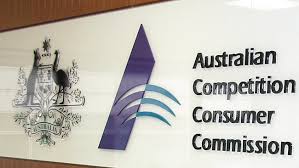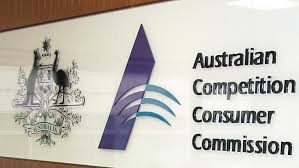
In relation to Apple’s mobile digital payments system, permission to collectively bargain with Apple Inc is likely to be denied to four local banks in Australia by the country’s antitrust regulator, the agency said on Tuesday.
Australian Competition and Consumer Commission Chairman Rod Sims told the media that if the banks make a convincing case before a final opinion is due in March, the preliminary decision was "finely balanced" and could be reversed.
The banks are hoping that they would be able to roll out their own iPhone versions free of competition from the Silicon Valley giant by bypassing Apple's in-house payments system and losing the case would be a setback to the banks' hopes. Apple has the biggest smartphone market share in Australia.
The banks are seeking the ability to offer their own digital wallets in Apple iPhones - the first major challenge to Apple Pay of its kind and under Australian law, bargaining cartels can be formed as long as they have permission from authorities.
Intentions to bargain with Apple over charging customers extra fees for transactions made through Apple Pay have been expressed by Commonwealth Bank of Australia, Westpac Banking Corp, National Australia Bank Ltd and smaller rival Bendigo and Adelaide Bank Ltd.
Collectively the banks would be able to boycott Apple Pay for up to three years as a negotiating tactic by a successful application by the banks - which jointly have two-thirds of the Australian credit card market.
Since it would undermine customers' privacy and data security, Apple has argued that third parties should not have access to its digital wallet technology. The company's representatives did not immediately respond to requests for comment.
Apple Pay allows users pay for goods and services by swiping the devices over contactless payment terminals after they register their credit cards on devices such as iPhones. For transactions via the service, which it introduced to Australia last year, Apple charges card providers fees.
Due to the secret nature of the terms Apple has agreed with competitors over the use of Apple Pay, including fees, the banks, in their application, argue that there is an information imbalance weighted in Apple's favor.
It would be difficult to win the case for the banks if the ACCC determines that the heart of the banks' complaint lies with fees, Sims said. the banks would however have stronger case to argue if it is more about access to Apple's contactless payment technology.
if the draft determination stood, there would be effectively no competition against Apple for mobile payments on the iPhone, a representative for the banks behind the application, Lance Blockley, said. The banks would continue to argue their case with the ACCC, he said.
Betting that being one of the first to offer the service would help bring in more customers, Australia and New Zealand Banking Group Ltd is the only one of Australia's "Big Four" banks to have a digital wallet agreement with Apple.
(Source:www.reuters.com)
Australian Competition and Consumer Commission Chairman Rod Sims told the media that if the banks make a convincing case before a final opinion is due in March, the preliminary decision was "finely balanced" and could be reversed.
The banks are hoping that they would be able to roll out their own iPhone versions free of competition from the Silicon Valley giant by bypassing Apple's in-house payments system and losing the case would be a setback to the banks' hopes. Apple has the biggest smartphone market share in Australia.
The banks are seeking the ability to offer their own digital wallets in Apple iPhones - the first major challenge to Apple Pay of its kind and under Australian law, bargaining cartels can be formed as long as they have permission from authorities.
Intentions to bargain with Apple over charging customers extra fees for transactions made through Apple Pay have been expressed by Commonwealth Bank of Australia, Westpac Banking Corp, National Australia Bank Ltd and smaller rival Bendigo and Adelaide Bank Ltd.
Collectively the banks would be able to boycott Apple Pay for up to three years as a negotiating tactic by a successful application by the banks - which jointly have two-thirds of the Australian credit card market.
Since it would undermine customers' privacy and data security, Apple has argued that third parties should not have access to its digital wallet technology. The company's representatives did not immediately respond to requests for comment.
Apple Pay allows users pay for goods and services by swiping the devices over contactless payment terminals after they register their credit cards on devices such as iPhones. For transactions via the service, which it introduced to Australia last year, Apple charges card providers fees.
Due to the secret nature of the terms Apple has agreed with competitors over the use of Apple Pay, including fees, the banks, in their application, argue that there is an information imbalance weighted in Apple's favor.
It would be difficult to win the case for the banks if the ACCC determines that the heart of the banks' complaint lies with fees, Sims said. the banks would however have stronger case to argue if it is more about access to Apple's contactless payment technology.
if the draft determination stood, there would be effectively no competition against Apple for mobile payments on the iPhone, a representative for the banks behind the application, Lance Blockley, said. The banks would continue to argue their case with the ACCC, he said.
Betting that being one of the first to offer the service would help bring in more customers, Australia and New Zealand Banking Group Ltd is the only one of Australia's "Big Four" banks to have a digital wallet agreement with Apple.
(Source:www.reuters.com)














